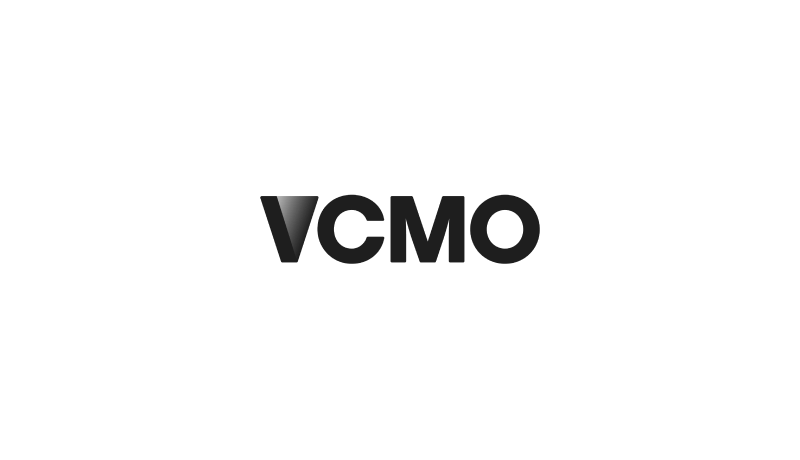Discover why Fractional CMOs can offer a competitive marketing advantage in professional services organisations to achieve scalable and predictable growth.
Introduction
In the conservative and often traditional world of professional services—encompassing legal, accountancy, and financial sectors—marketing frequently takes a back seat, especially in firms that are partner-led and seldom have dedicated marketers in leadership roles. This article explores how Fractional Chief Marketing Officers (CMOs) can bring strategic marketing leadership to such environments, aligning marketing efforts with business goals effectively.
What is a Fractional CMO?
A Fractional CMO is a senior marketing leader engaged on a part-time basis to inject strategic marketing expertise into an organisation without the long-term commitment and cost associated with a full-time executive. This role is particularly advantageous in professional services where marketing might not be a core competency of the firm’s leaders.
Read more in our article: What is a Fractional CMO.
"Fractional CMOs bridge the gap between traditional practice and modern marketing, strategically transforming client engagement in conservative professional services firms."
Rachael Wheatley - Chartered Fractional CMO, VCMO
Unique Marketing Challenges in Professional Services
Professional services firms face unique marketing challenges. Their markets are highly regulated, and decisions are often made by partners with limited marketing experience. Moreover, the conservative nature of these industries can hinder the adoption of innovative marketing strategies, creating a need for specialised expertise that understands both the restrictions and opportunities. Here are the common marketing challenges in these types of organisation:
- Regulatory Compliance: Marketing in fields like legal and financial services must adhere to strict regulations, limiting the scope and creativity of advertising and promotional activities.
- Partner Reluctance: Often, partners in professional services firms are hesitant to invest in marketing, viewing it as a secondary priority compared to client service and billable hours.
- Intangible Service Offering: Marketing services that are intangible and complex, such as legal or financial advice, can be challenging as it requires translating expertise into understandable client benefits.
- Building Trust: Professional services rely heavily on trust and personal relationships, which can be difficult to establish through traditional marketing channels and require a tailored approach.
- Differentiation: Many professional services firms offer similar services, making it challenging to differentiate one firm from another without clear and compelling unique selling propositions.
- Client Confidentiality: Marketing strategies must navigate the need for client confidentiality, limiting the use of client testimonials or detailed case studies that could otherwise illustrate service effectiveness.
- Long Sales Cycles: The decision-making process in hiring professional services is often lengthy, impacting the ability to quickly convert prospects into clients through marketing.
- Limited Understanding of Marketing ROI: There is often a lack of understanding among partners about how to measure the return on investment in marketing, making budget approvals challenging.
- Conservative Culture: The traditionally conservative nature of professional environments can resist innovative or bold marketing strategies, preferring tried-and-true methods despite changing market dynamics.
- Integration of Digital Strategies: Integrating modern digital marketing strategies into a firm that has relied on networking and referrals can be slow and meets resistance from traditionalists.

The Strategic Need for Fractional CMOs in Professional Services
Fractional CMOs offer a solution by providing strategic insights tailored to the specific needs of professional services. They navigate through industry constraints and partner expectations to develop marketing strategies that enhance visibility and drive business growth, ensuring that efforts are both compliant and competitive. Very few professional services firms operate with a full-time chief marketing officer, and if they do, it is rare that they appear on the board, typically feeding in their advice to the partners.
Aligning Marketing with Partner-Led Business Goals
In firms where key decisions are made by partners, a Fractional CMO can act as a bridge between traditional business strategies and modern marketing techniques. They work closely with partners to craft strategies that not only resonate with the firm’s objectives but also introduce innovative approaches that are measurable and impactful.
Marketing Strategies Suitable for Professional Services
Effective strategies in these sectors include thought leadership, content marketing, and relationship building. Fractional CMOs are adept at implementing these strategies to elevate brand authority and nurture client relationships, crucial for business development in fields where trust and credibility are paramount.
"In the digitally-driven market, fractional CMOs are crucial for guiding traditionally slow-to-adapt professional services into effective digital marketing strategies that resonate with today’s clients."
Role of Fractional CMOs in Digital Transformation
As digital presence becomes increasingly important, Fractional CMOs can lead the charge in transforming traditional practices into digital-savvy operations. This includes everything from enhancing digital customer touchpoints to leveraging data analytics for better client engagement and service delivery.
Building and Measuring Marketing ROI
One of the critical roles of a Fractional CMO is establishing metrics and KPIs to measure the return on investment (ROI) of marketing activities. They introduce tools and methodologies to track engagement, conversion, and client satisfaction, demonstrating the tangible benefits of strategic marketing investments.
Integrating Marketing into the Firm’s Culture
Fractional CMOs also play a pivotal role in integrating marketing into the firm’s culture. They foster a marketing-oriented mindset among partners and staff, encouraging a more proactive approach to client engagement and brand development, essential for sustained growth.
Challenges of Introducing a Fractional CMO into a Professional Services Firm
Introducing a Fractional CMO can meet resistance, particularly in a firm unaccustomed to valuing marketing as a key business driver. This role requires not just marketing acumen but also significant change management skills to align the firm’s traditional views with modern marketing strategies. Here are some common pinch points and the solution Fractional CMOs can offer to overcome initial partner resistance:
- Cultural Resistance: Traditional firm cultures may view marketing as a low priority. The Fractional CMO can demonstrate successful case studies and quantify the benefits of strategic marketing to shift cultural perceptions.
- Budget Concerns: Partners may be reluctant to allocate budget towards marketing efforts they don't fully understand. The Fractional CMO can introduce clear, measurable marketing metrics that directly correlate with ROI to justify budget allocations.
- Lack of Marketing Knowledge: There may be a fundamental lack of understanding of marketing's role and potential. The Fractional CMO can provide educational sessions to partners, highlighting how marketing directly contributes to client acquisition and retention.
- Fear of Brand Dilution: Concerns about maintaining the firm's prestigious reputation might deter aggressive marketing strategies. The Fractional CMO can tailor discreet yet effective marketing strategies that align with the firm’s values and enhance its reputation.
- Integration with Existing Processes: Existing staff, namely partners and associates, may be resistant to new BD processes or tools introduced by the fractional CMO. The Fractional CMO can facilitate workshops that involve key stakeholders in the strategy development process, ensuring their input and buy-in.
- Perceived Short-term Engagement: Some may view the fractional CMO's part-time role as less committed or temporary, affecting their influence. The Fractional CMO can set clear, long-term strategic goals and communicate their commitment to achieving these objectives.
- Relationship Building: Building trust with long-standing firm members can be challenging. The Fractional CMO can prioritise personal interactions, taking time to understand each partner’s perspectives and align strategies with individual and firm-wide goals.
- Measuring Impact: Difficulty in measuring marketing effectiveness may lead to scepticism about the value of marketing. Fractional CMOs can implement advanced analytics and reporting tools to provide tangible, data-driven results that demonstrate the impact of marketing initiatives.
What to Look for When Hiring a Fractional CMO
Selecting the right Fractional CMO involves looking for candidates with proven experience in the professional services sector, an understanding of partnership-driven business models, and the ability to communicate effectively across all levels of the organisation. Their strategic vision should align with the firm’s long-term goals, ensuring they can contribute to both immediate and future growth.
Learn more in our article: How to Choose a Fractional CMO for Your Business: A Comprehensive Guide.
Conclusion
Incorporating a Fractional CMO into a professional services firm offers numerous benefits, from aligning strategic marketing efforts with business objectives to introducing efficient, measurable tactics that enhance client engagement and firm visibility. As professional services continue to navigate a rapidly changing business landscape, the Fractional CMO stands out as a key player in transforming traditional firms into market-responsive, client-oriented entities. Their strategic insight and flexible engagement model make them an ideal solution for firms looking to innovate their marketing efforts without committing to a full-time position.
Get in touch: If this article reflects what you’re experiencing, get in touch to explore whether fractional marketing leadership is the right fit for your business.
About VCMO
VCMO is a UK-based provider of fractional marketing services, supporting B2B SMEs—ranging from funded scale-ups to mid-tier and private equity-backed businesses—through key moments of growth and transformation. Its Chartered Fractional CMOs and SOSTAC® certified planners embed strategic marketing leadership into organisations navigating product launches, new market entry, acquisitions, and leadership gaps.
What’s a Rich Text element?
The rich text element allows you to create and format headings, paragraphs, blockquotes, images, and video all in one place instead of having to add and format them individually. Just double-click and easily create content.
- By following these tips, you can make sure you’re noticed on LinkedIn and start building the professional connections you need to further your career.
-

Static and dynamic content editing
A rich text element can be used with static or dynamic content. For static content, just drop it into any page and begin editing. For dynamic content, add a rich text field to any collection and then connect a rich text element to that field in the settings panel. Voila!
How to customize formatting for each rich text
Headings, paragraphs, blockquotes, figures, images, and figure captions can all be styled after a class is added to the rich text element using the "When inside of" nested selector system.


Ready to take your marketing to the next level? Let us help you get there.
Subscribe to Our Newsletter
Fractional Edge is our montly newsletter sharing expert opinion on the latest trends in fractional leadership, curated marketing content from leading sources, VCMO events, and much more. Subscribing is quick — just add your name and email.












.jpg)




